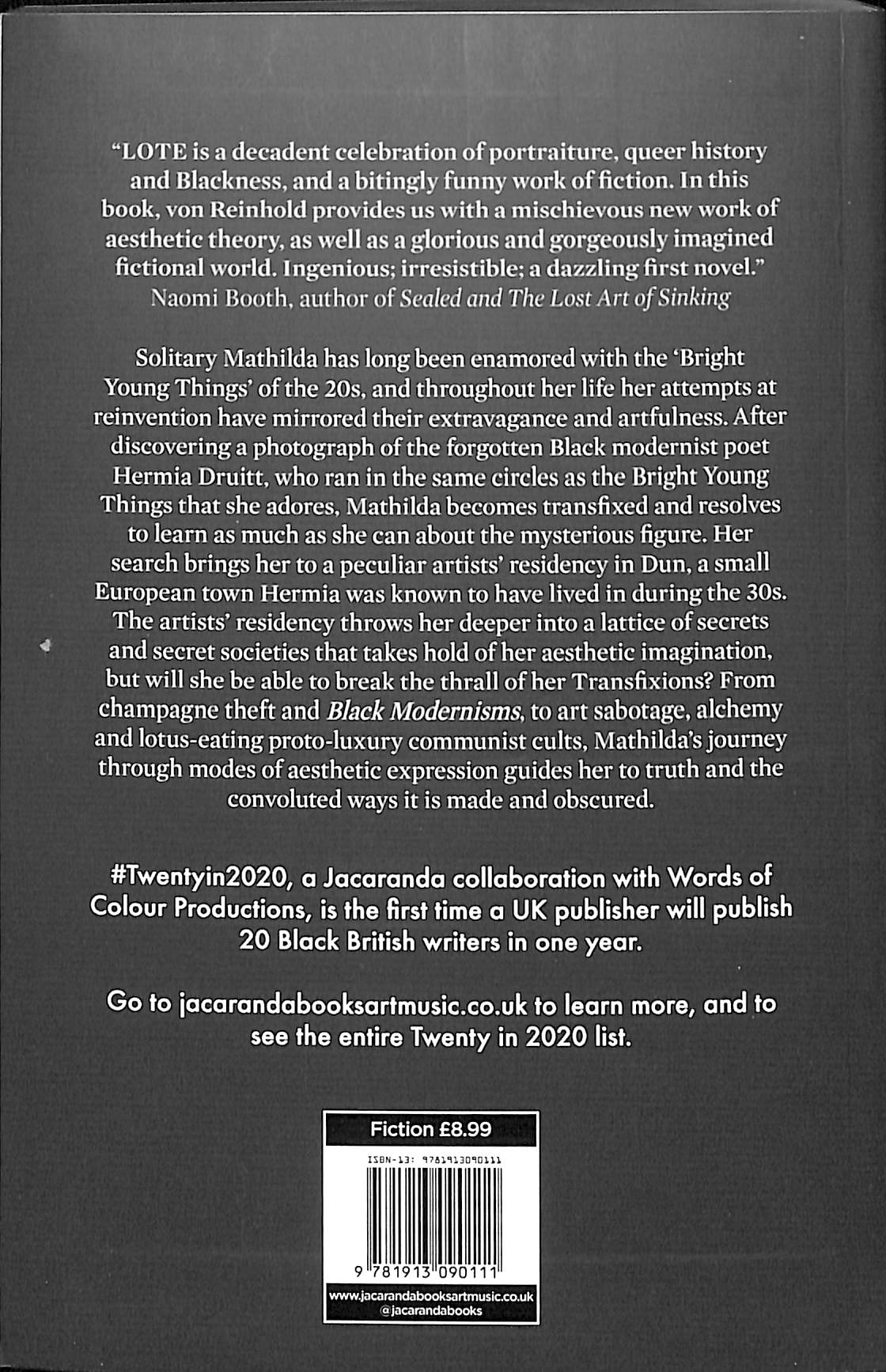



Mathilda is a self- declare d ‘ Arcadian ‘, her term for a pleasure-seeking yet political archivist, who strives to enhance her present with visions of the decadent past. Not yet captioned, these snapshots have been gathering dust in the gallery for a decade, their significance undetermined. Mathilda has been recruited, without pay, to sift through a donation of photographs. The novel opens in the National Portrait Gallery archive in London, circa 2019. ‘And/or Black, ’ amends Reinhold – and with this as a sort of epigraph, their novel begins both a critique and a celebration of the era, setting out to recover the lives of Black Anons, and to conjure voices that didn ’ t make it into history. ‘I would venture to guess that Anon, who wrote so many poems without signing them, was often a woman,’ Woolf famously wrote. The novel is underpinned by a question: Why are so few queer Black British modernists documented in those flourishing interwar years? Through an impressive mix of scholarship and historical fiction, Reinhold sets out to unravel and challenge this history, prying open the ledgers to ask how and why the received archive is so overwhelmingly white. Despite their experimental poetry, queer lifestyles, and self-fashioning (‘frock consciousness’, as Virginia Woolf called it), radicality is countered by entitlement after all, rich people have always made exceptions of their own kind. The catch is that members of both groups were, by and large, spoilt, white and rich. Through a cocktail of hedonism, androgyny and queer love, this group - along with their counterparts in the Bloomsbury Group - began to deconstruct patriarchy a century ago, and seem to offer Mathilda an escape from the present, with all its social and racial barriers – except they don ’ t. Via diaries, letters and photographs she discovers the Bright Young Things, as they were fondly known, a set of decadent and disobedient socialites who threw elaborate, drug-fuelled parties across the 1920s and 30s. It tells the story of a queer Black thinker named Mathilda, in the present day, who is transfixed by an historical era that does not adequately represent her. To read Shola von Reinhold ’ s ornate, multi-layered novel LOTE (2020) is to encounter a baroque mind.


 0 kommentar(er)
0 kommentar(er)
